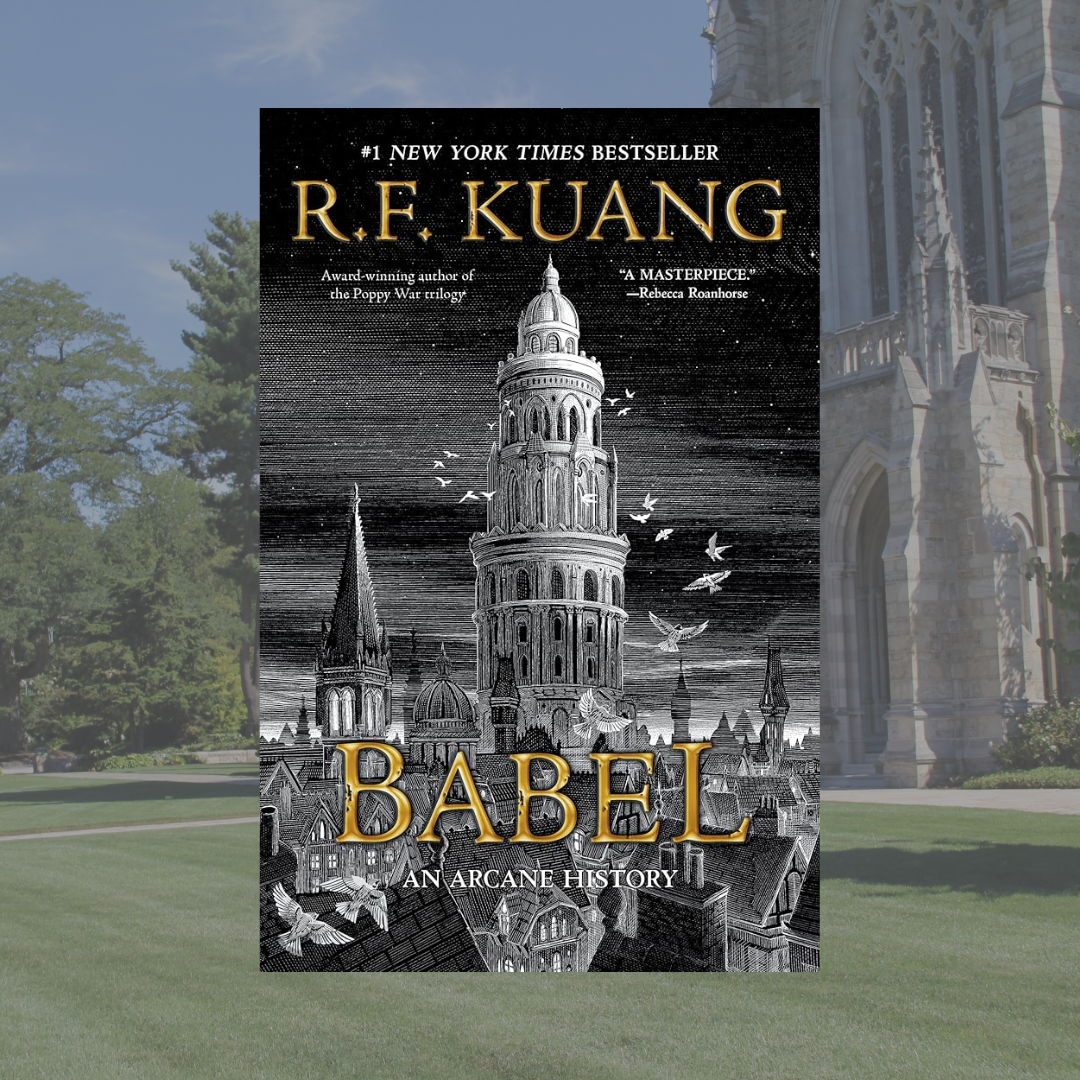Spoiler-Free Review
Some readers love Babel, but unfortunately, I was not one of them.
What’s Babel about?
Robin, a Chinese man raised in linguistics by a cold English professor, attends a prestigious language school that also specializes in a specific type of magic. While there, Robin must eventually confront cruel injustices and decide the role he wants to play in this world.
This story sacrifices tight narration for its niche interest.
It has taken me some time to gather my thoughts on this one. I was never excited to pick it back up. Its themes are worth exploring, but the execution was so lackluster and the momentum so stop-and-go that I struggled with it. It was didactic and almost too niche to be enjoyable by a wide audience, not to mention so obvious in its lessons that, despite agreeing, I was compelled to eye-rolling (and in case you somehow miss the message, the book is riddled with footnotes to make extra sure you get it).
Let’s start with something I liked, which was the worldbuilding. This is a low fantasy; it’s more historical fiction with magical elements than it is a true fantasy. In this version of 1830s Cambridge, there exists a type of magic called “silver-working” in which magical practitioners can engrave spells into bars of silver. They can then attach the silver to anything they want to modify. For example, magicking plates to keep food warm, or carriages to ride smoothly. I thought this was an interesting fantasy element that matched the capitalistic industrialism of the era.
On the characters, I was lukewarm. I was sympathetic to Robin’s plight, but found him otherwise bland and uninteresting. He’s often put-upon by others, which just made him feel flimsy and weak. A side character with a specific connection to Robin appears about a hundred pages in, and I felt…nothing. Of all the cast, the only one I found interesting was Ramy, Robin’s friend, and we honestly don’t see very much of him. We get to know Victoire even less. But I disliked the character of Letty most. She felt like a mouthpiece for an obliviously racist white girl; she was a caricature and not a person.
I struggled most with the villains, because they were all the same. In fact, I struggled to even picture each of these characters differently because they were essentially same person with different names. Then there was a betrayal that had me rolling my eyes from the predictability, considering how Kuang wrote these characters. Zero complexity allowed. Each character fit neatly into their prescribed box; they were good, or they were bad.
To return to the pacing that I mentioned earlier, let me quantify what exactly made it feel so slow. While this is an academic fantasy, I found myself zoning out when entire lectures were written out on page. I may not be a linguistics student, but I feel I should have an honorary certificate after reading this book. Some readers will love this part, others, like me, will be wondering, “Okay, that’s great and all, but when is something going to happen?” It was extremely hard for me to read more than a chapter at a time because these elements, to me, felt indulgent on the part of the writer (particularly with the footnotes). It was boring me.
The first 100 pages were fine. It was slow-going, but still had its own pace that I could appreciate. Pages 100-300 completely ground to a narrative halt. I was not even a little interested in their long-winded classroom etymology discussions, and the lack of plot movement was especially trying. I might have been more interested in Robin’s general student life if any of it spelled out character growth for him, but it didn’t. Aside from a few moments where Robin was interesting, he simply felt like a pair of eyes to see the story through, with no will or personality of his own. There was nothing I could latch onto.
Basically, it wasn’t long because a lot happens; it was long because it was drawn out.
None of this is to say it’s poorly written, because it’s full of great prose. Kuang is a really strong writer; she crafts every sentence with care and that’s obvious. But good prose isn’t enough; I need to care, and on this front it failed to grab me.
The moral this story promotes through its themes is an important one; it analyzes the role of colonialism and industrialization in the oppression of others, and how these things bleed over into the academia world as well. The thing is, Blood Over Bright Haven and To Shape a Dragon’s Breath both explore the same themes and, in my opinion, do a better job of it. A lot of the issues I had with Babel in this area I also describe in my blog on moralistic literature.
Should you read Babel?
If you liked what Babel tried to accomplish, but found it too slow and would be interested in a more high-fantasy version, I highly recommend Blood Over Bright Haven. To be honest, I liked that one way more. If you’d be interested in a YA version, you might like To Shape a Dragon’s Breath.
If you’re more into historical fiction than fantasy, you might try Babel. The magical elements are not heavy, and mostly serve the themes rather than the plot. You’ll also like this if you really enjoy academic vibes. If you want to feel like an Oxford student by proxy, perhaps while enjoying a hot coffee in a cozy café, read this book. You’ll probably like it if you liked The Secret History.
I would love to have you around! Subscribe below.







